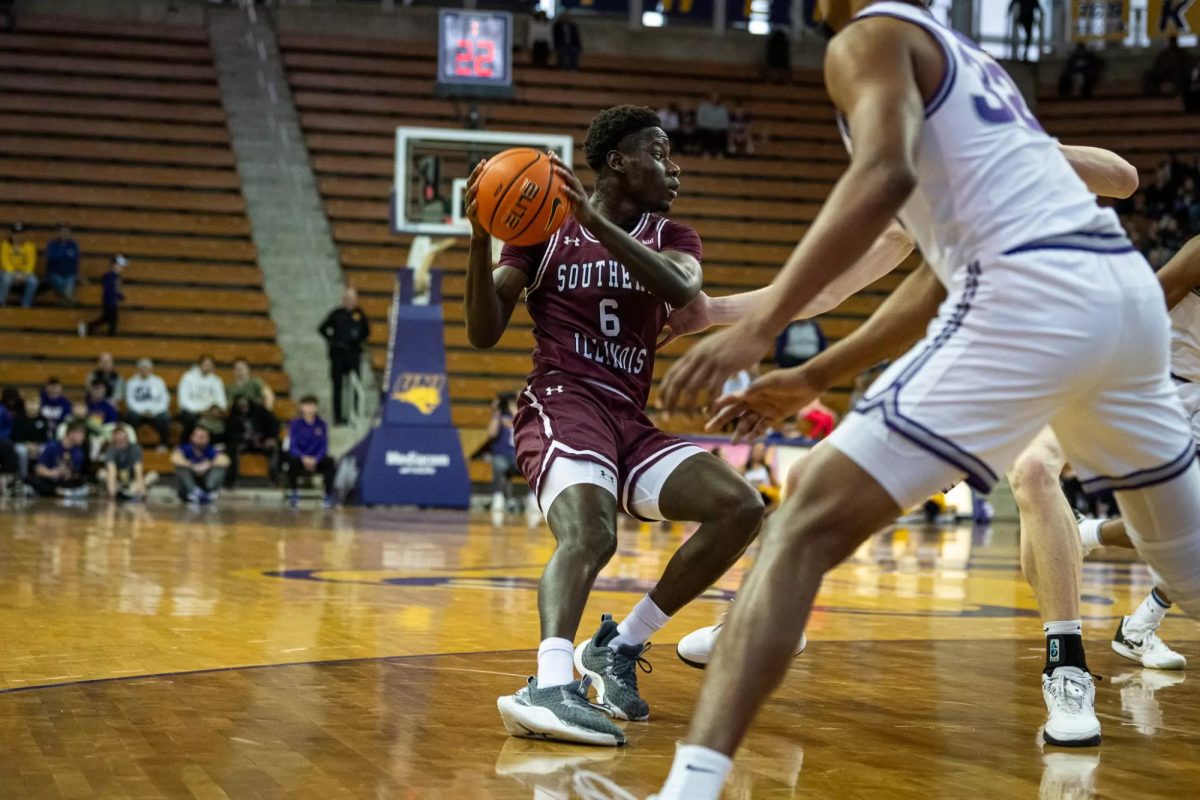Alliance aims to end LGBTQ discrimination
October 20, 2014
Twenty to 40 percent of homeless youth are a part of the lesbian, gay, transgender, bisexual and queer community, according to the National Gay and Lesbian Task Force Policy Institute.
This is one of the many statistics addressed Tuesday at a seminar held by the Illinois Safe School Alliance in the Student Center. The alliance is taking a stand in Carbondale to end housing discrimination for LGBTQ members, and is working with school districts to create safe spaces.
Marcus Fogliano, regional education and youth outreach coordinator for the alliance, spoke at the meeting to educate housing authorities and organizations about youth homelessness in the LGBTQ community.
Advertisement
“A study found in LA that 20 percent of foster care youth were LGBT, and bringing that information forward to people to realize that is a problem and that is out there,” Fogliano said.
Fogliano said it is very encouraging to see such a small southern town addressing the needs of the LGBTQ community. The stop in Carbondale is a part of a statewide series educating people about the problem.
“The main goal is awareness to let people know that there are community resources available to address youth homelessness and create safe spaces for youth in our community and our schools,” he said.
Maya Rupert, a policy director for the National Center for Lesbian Rights, a San Francisco legal organization, said there are federal efforts underway to help protect LGBT people from housing discrimination.
She said housing organizations partner with nonprofits such as the center to do outreach on specific constituency issues in the LGBTQ community.
Rupert said in 2012, the LGBTQ Equal Access Rule was passed and has been increasingly gaining attention throughout the country.
“We have been trying to find opportunities to talk more about that so people know it’s out there,” Rupert said.
Advertisement*
She said in Illinois there are an increasing number of protections against housing discrimination but homelessness in the LGBTQ community is an issue throughout the country.
Amber Madden, training project coordinator for the Illinois Department of Human Rights, said LGBTQ community members have legal protections but they are generally unaware of them.
Madden said since 2006, when sexual orientation and identity were added to housing files, there have been about 60 reports, but the issue is massively underreported. Many of the statistics included in the seminar were found in collaboration with the research done by the alliance and the Illinois Department of Human Rights.
Rupert said the number of reports of discrimination is decreasing, but it isn’t because discrimination is decreasing, but the lack of reports people are making.
“The Federal Fair Housing Act is the legislation that protects people from being discriminated in the housing market,” Madden said. “If you felt like you were kept out of housing, harassed in your housing or effectively somehow denied housing or equal access to the housing market because you are gay, lesbian, bisexual or transgender, there are protections for you.”
She said she isn’t sure if there has ever been charges of sexual orientation discrimination in Carbondale’s housing market, but in Chicago LGBTQ discrimination cases have the smallest number of reports filed at her agency.
“I think it’s really difficult to get statistics from a homeless population,” Madden said. “Especially if they are homeless as a result to their sexual orientation [they] might be much more hesitant to reveal that they are LGBT.”
She said there is a lot of outreach work to be done, as far as educating people in the community about what their rights are. She said it is important for people to speak up because it is the only way to stop discrimination.
“We have these laws for a reason, exercise your rights or don’t become knowledgeable about what they are, discrimination will continue to happen,” Madden said. “So we really advocate for people to file charges, fight for their rights, and stand up for themselves.”
Gabriella Scibetta can be reached at [email protected] or on Twitter @gscibetta_DE.
Advertisement








